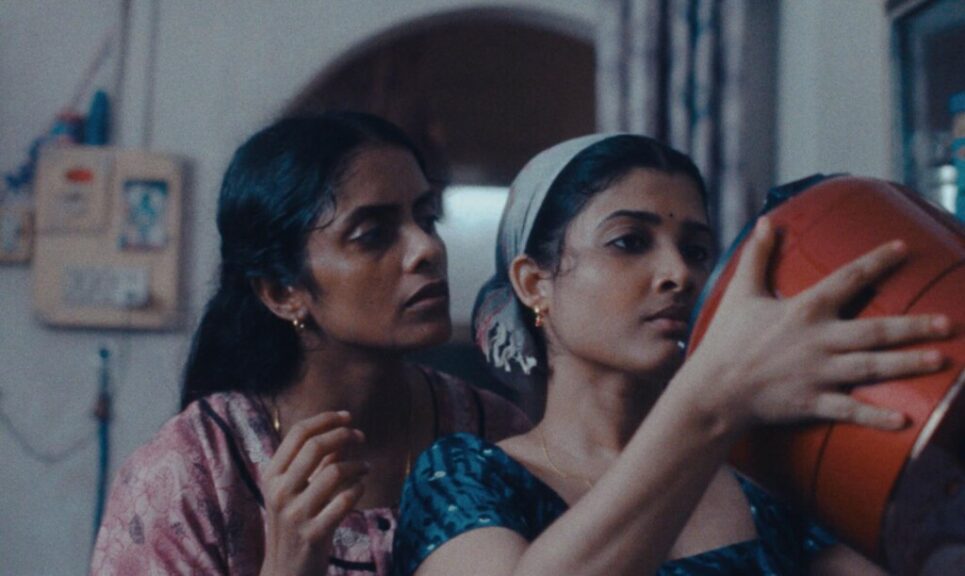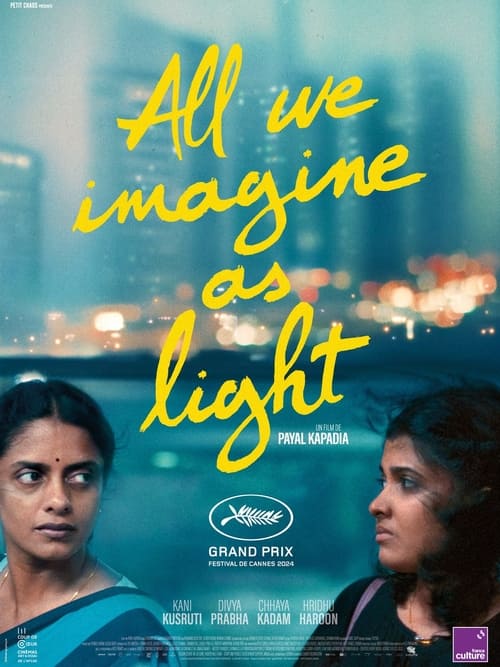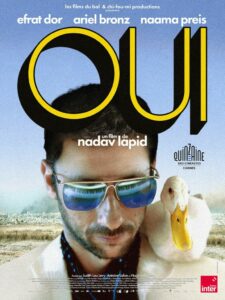In Mumbai, Nurse Prabha’s routine is troubled when she receives an unexpected gift from her estranged husband. Her younger roommate, Anu, tries in vain to find a spot in the city to be intimate with her boyfriend. A trip to a beach town allows them to find a space for their desires to manifest.
Payal Kapadia‘s All We Imagine As Light made its mark on our retinas at Cannes, and we were confident, without taking any great risks, that the film would make the shortlist, such is its generosity – in the primary sense, that of the pleasure of talking about others, of sharing a common feeling, and not in the all-too-frequently misappropriated sense, which conveys the satisfaction of wanting to show off :-).
Particularly gentle, and embracing a look at the women of Mumbai, and its bay, the young director’s singularly feminine universe stood out in a competition as a whole lacking in singular works or pronounced artistic gestures – the prize list reflects these deficiencies (we’ve long appreciated Sean Baker’s work, but Anora greatly disappointed us…).
Poetically, director Payal Kapadia, noted for her previous experimental documentary films, evokes the painful subjects so typical of the condition of women in India: the freedom denied them, their place in society, men’s behavior towards them, forced marriages, the impossibility of going against tradition or religion. Throughout, however, the film opts for chiaroscuro, both literally and figuratively. The ancestral nature of the highly patriarchal society denounced here is counterbalanced by scenes on the metro, women going to the movies together, texting in love, to show us that women in India today belong to a globalized world, are women first and foremost, and not subjects – let alone objects – of study, to be viewed with distance, and regarded as exceptions. No, what Kapadia is aiming for is much more universal, even if it means disturbing us by not choosing a rebellious, electric form, but on the contrary, a gentleness at every level that embraces the struggle the heroines wage on a daily basis. Kapadia doesn’t just show us the lights of Mumbai’s world-famous bay, with its thousand-year-old magentism, but also the reflections of light in the pupils of these young women, full of life and hopeful of change, of a peaceful revolution. Their struggle can be heard in their conversation, and might seem like acceptance, whose militant effectiveness we might legitimately doubt, but All we imagine as light shows us a resistance at all times, a resolutely optimistic vision that passes through mutual aid, union and gentle, courageous denunciation, far more likely to make dominant, archaic men, who culturally maintain patterns that are insufficiently challenged, think twice. There’s no rage here, just a state of mind, an inner beauty. Surprisingly, Kapadia‘s gesture towards Mumbai, in its feminine form, is rather like Sorrentino‘s towards Naples: a declaration of love-hate, attraction-repulsion.



The poetry of All we imagine as light comes across so clearly after the film has been set up – whereas that of Gomez‘s Grand Tour was less immediate – in large part due to the very particular mode of narration, based on what is exchanged and said between the protagonists, the confidences they deliver to each other.
This structure is reminiscent of the undertakings undertaken in the past, for example, in films by Jim Jarmush or Wayne Wang/Paul Auster. In the end, it is just as effective as a pamphlet, which would have chosen to offend in order to question us (something that was also lacking in this year’s Cannes selection), in conveying the road still to be traveled, the battles to be fought, and what it is permissible to do while waiting for things to change, the few weapons the victims have, what remains possible in the face of the inexorable: benevolence, mutual aid, but also and above all, deluding ourselves, dreaming, to nourish an inner life that is more beautiful than reality.










Be First to Comment